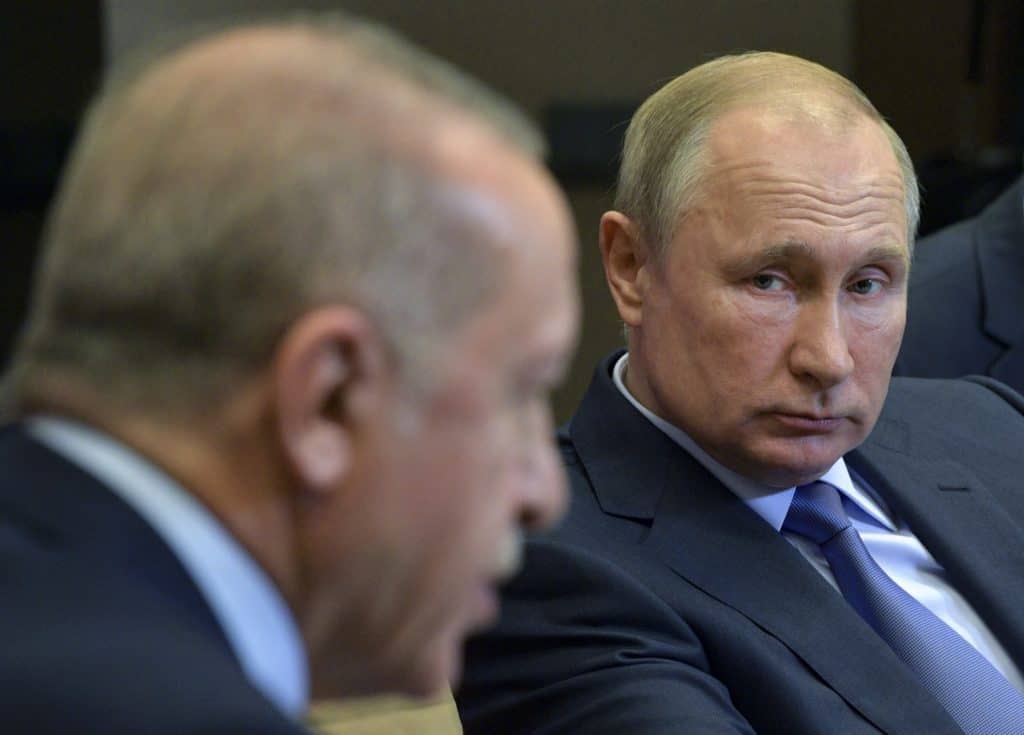By Denis Korkodinov
Russian President Vladimir Putin has probably already determined his position regarding relations with his strategic partners – Tehran and Ankara. This choice was made under pressure from the Russian military command in Syria, which is tired of containing Turkish attacks in Idlib.
The ayatollah regime is trying to put pressure on Moscow because it is in no hurry to condemn US sanctions and Israeli air strikes on Iranian targets. In turn, Recep Erdogan demands from Vladimir Putin to influence the retention of the Syrian Arab Army from further attack on Turkish positions.
Under these conditions, the Russian leader faced a choice. On the one hand, he does not want to lose the confidence of Tehran, whose enormous influence extends to almost all the countries of the Middle East and Latin America. On the other hand, the Turks began to frankly annoy him in Idlib. Therefore, Vladimir Putin agreed that the Turkish army would begin a military campaign in northwestern Syria with the expectation that they would be defeated, as a result of which they would be forced to leave Syrian territory.
Meanwhile, the Turkish military campaign in Idlib has made significant changes to the Syrian crisis. In particular, as a result of Ankara’s actions, the possibility of reaching peace between the parties to the conflict is significantly reduced, as the Astana and Sochi negotiation formats completely lose their strength and there will not be a new negotiating platform for a long time to come. Based on this, the end of the war in Syria is postponed indefinitely.
This state of affairs creates a reputation in the international arena for Vladimir Putin, who is the leading guarantor of the settlement of the Syrian confrontation. And if in the near future Moscow does not announce a new round of the negotiation process, then subsequently it will be extremely difficult for it to confirm its status as an international guarantor. Now Russia can only guarantee that the Turks are likely to be defeated in Idlib, in connection with which they will be forced to begin to negotiate with the Syrian Arab Army to maintain the status quo.
Washington continues to play a very controversial role in Syria. In this regard, Moscow doubts that any decisions made by Donald Trump regarding the Syrian conflict can be taken into account, since there is a risk that these decisions can be quickly canceled by the White House administration. This also applies to Idlib, where the Americans promised to help Recep Erdogan.
Meanwhile, Donald Trump, most likely, is determined to restore the process of exporting American democracy to Syria, which causes concern on the part of Russia, primarily because this may limit the ability of the Kremlin to influence the force groups operating in the region. As a result of this, Vladimir Putin will carefully monitor what actions the United States will take in Idlib. And only after determining specific American goals, the Kremlin will decide on the preparation of a new format of talks on Syria.
Speaking at a meeting of the Justice and Development Party parliamentary faction in Ankara on February 19, 2020, Recep Erdogan stated that the military operation of the Turkish armed forces in Idlib could begin at any time. Thus, the Turks increased the risk of another escalation of the conflict. Moscow probably will not discourage the Turkish leader from starting a large-scale military adventure. But at the same time, Russia will significantly strengthen the position of the Syrian Arab Army, thus creating for them a military advantage over the Turks. Now the main problem is to prevent accidental clashes between units of the Turkish and Russian army, as this can lead to irreversible consequences.
Moscow proceeds from the opinion that the Turks should be taught a lesson for violating existing agreements on de-escalation of the conflict in Syria. However, Russia will not act directly, providing an opportunity for the forces of Bashar al-Assad to defeat Turkey.
Thus, Vladimir Putin, obviously, made his choice in favor of Iran. In the near future, Russian-Iranian relations are likely to experience a heyday, while cooperation with Turkey will be systematically reduced, since the next escalation of the conflict in Syria undertaken by the Turks could nullify Moscow’s “Middle East success” policy. The Kremlin has become disillusioned with its Turkish partner and is unlikely to contribute to the implementation of its military campaigns.
(The views expressed in this article belong only to the author and do not necessarily reflect the views of World Geostrategic Insights).







